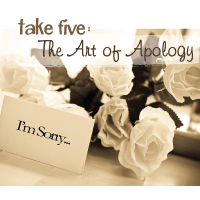Five Strategies to Improve your Marriage

Is it possible to improve a troubled marriage without the cooperation of our spouse? Read on for our top five strategies to improve your marriage.
A lot of people feel trapped in a dissatisfying or troubled marriage. They feel powerless to ‘fix’ it because their spouse refuses to join them in counselling or a marriage enrichment course.
Yet in truth, there are lots of things a husband or wife can do on their own that can have a dramatic impact. Here are five simple strategies to start turning your marriage around.
-
Daily Appreciation
The old adage ‘count your blessings’ is powerful wisdom. A habit of gratitude and appreciation is a discipline with big payoffs. When we consciously express our gratitude to our spouse, it increases his/her sense of being valued, communicates our respect and love. Even if we’ve been arguing all day, we can always find at least one thing to appreciate.
Moreover, it changes our perspective. Focusing what is good in our spouse helps turn our attention away from his/her shortcomings towards their giftedness. That will lift our spirits and pull us towards a more optimistic perspective.
-
I’m Sorry
It’s easy to speak sharply, reply abruptly, criticise unkindly, nag unnecessarily. We all do it and we mostly know when we do. These little barbs in our daily conversation may seem trivial, but they accumulate creating deep hurt in our spouse and breaking our trust.
It’s such a simple thing to say “I’m sorry. I shouldn’t have said that.” Yes, it takes humility, but it gets easier the more we do it.
Make it a habit to apologise immediately and you’ll avoid accumulating unresolved, brittle baggage.
-
Tell me about it
The simple act of listening without an agenda is one of the most affirming and loving gestures we can give our spouse. Too often people listen defensively, ready to refute or argue, get their turn or get back to their own interests. We go through the motions of listening when really, we are thinking about our next words or how to wrap the conversation up.
Make a choice to give your spouse your 100% attention. Create an environment that welcomes the conversation using body language to communicate your attentiveness. Encourage further self-revelation and self-reflection by paraphrasing what you have heard and asking: is there anything more you’d like me to know about that?
-
Time Out
It happens to every couple… a misunderstanding or difference of opinion gains energy and an argument takes over. Research shows that once we get emotionally aroused in an argument, our ability to regulate our words, thoughts and emotions diminishes.
Learnt all the communication and conflict resolution skills? Forget it! When we’re emotionally flooded, our body and brain is in defense mode and all those skills get left behind.
So call a ‘time out’ and give yourself some space to cool off. It takes around half an hour for our body to physiologically recover, so we use the time to self-soothe: breathe deeply, take a walk, say a prayer, go for a drive, get a cup of tea… whatever helps you calm down and reconnect with the inherent goodness in the other.
-
Pray for your spouse
Research has found that a simple daily prayer for our spouse dramatically improves the optimism and marital satisfaction in the pray-er. Other measurable factors included: greater willingness to forgive, less alcohol consumption, lower incidence of domestic violence.
Those who prayed daily did better than those who did nothing, or those who spent a minute in positive reflection. A simple prayer like the following does the trick:
Prayer for my Spouse
Lord God, I thank you for the gift of my husband/wife.
Forgive me for the times I have failed to love him/her as I should.
Help me to love him/her well and be a better spouse.
Amen.





Love these tips. We all do better with encouragement.
I like how you mentioned that listening can improve a marriage. I would think that listening is a skill many people don’t have. Working with a relationship counselor could be a good way to learn how to listen.
Agreed Henry – with some very rare exceptions, listening is almost always a valuable exercise for building relationship. Interestingly, we find that if someone truly listens to us, we feel more willing to hold die-hard convictions a little more lightly. Conversely, when someone fails to listen, we feel like we have to fight to defend our view. Thus, the failure to listen leads to more polarisation.
Fabulous stuff as always
Interesting!